The new upcoming Netflix series “Umbrella Academy” staring Ellen Page, Tom Hopper and David Castaneda is set to be a dark, fun superhero series with a twist. Focusing on the aftermath and lives of former child superhero group The Umbrella Academy, we see the band of orphans gather together after the death of their adoptive father. While trying to surpass the threats of a pair of time travelling assassins, they must navigate through unresolved rivalries and feelings within their family unit. We dive further into the world of the “Umbrella Academy” and its characters in an interview with actors Tom Hopper (Luther Hargreeves), David Castaneda (Diego Hargreeves) and Robert Sheehan (Klaus Hargreeves).
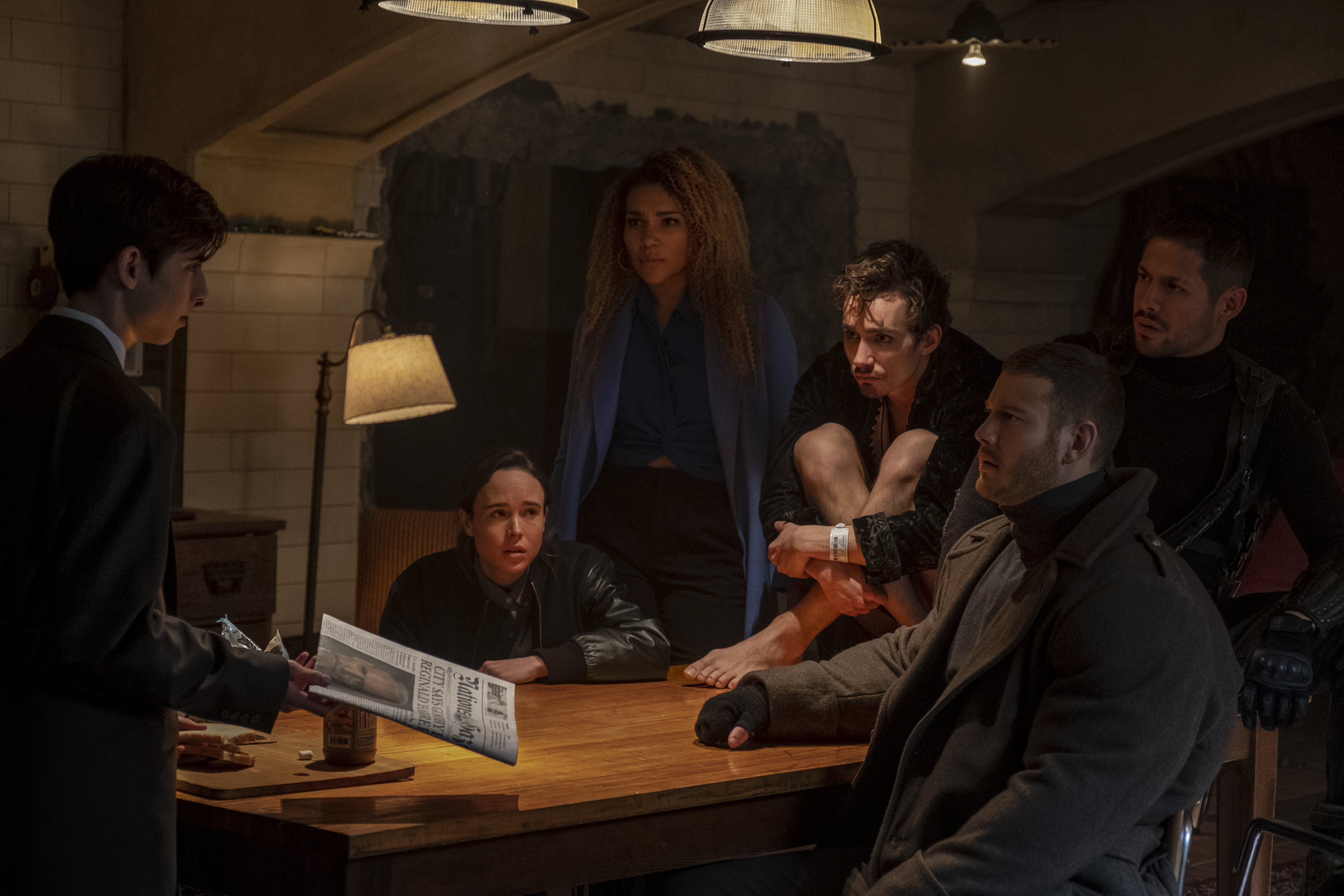
David Castaneda (Diego Hargreeves)
What’s it like working on a show that’s to be aired on a platform as big as Netflix?
It’s great, they’re pulling up some really good stuff. They always have a standard for putting out good quality, so it’s a very exciting time.
Did you read or know about the comics before the show?
No, I got to read the comic books when I was given the chance to play the character of Diego Hargreeves and I took a lot of it just trying to figure out the physicality of Diego, and also just by how he talks to his family in the comic books- really, really kind of being a bit distanced, knowing your always different- that right there is not much different than the comic books, it really transitions.
How do you feel about the alternate reality that Umbrella Academy is set in?
It really is a weird world that we worked on for the show. I think, in my opinion, it does serve the comic book, at least for the theme, like it had to be something that is very dark and just the composition of each frame, that you will see, is quite specific to the feel of the comic book.
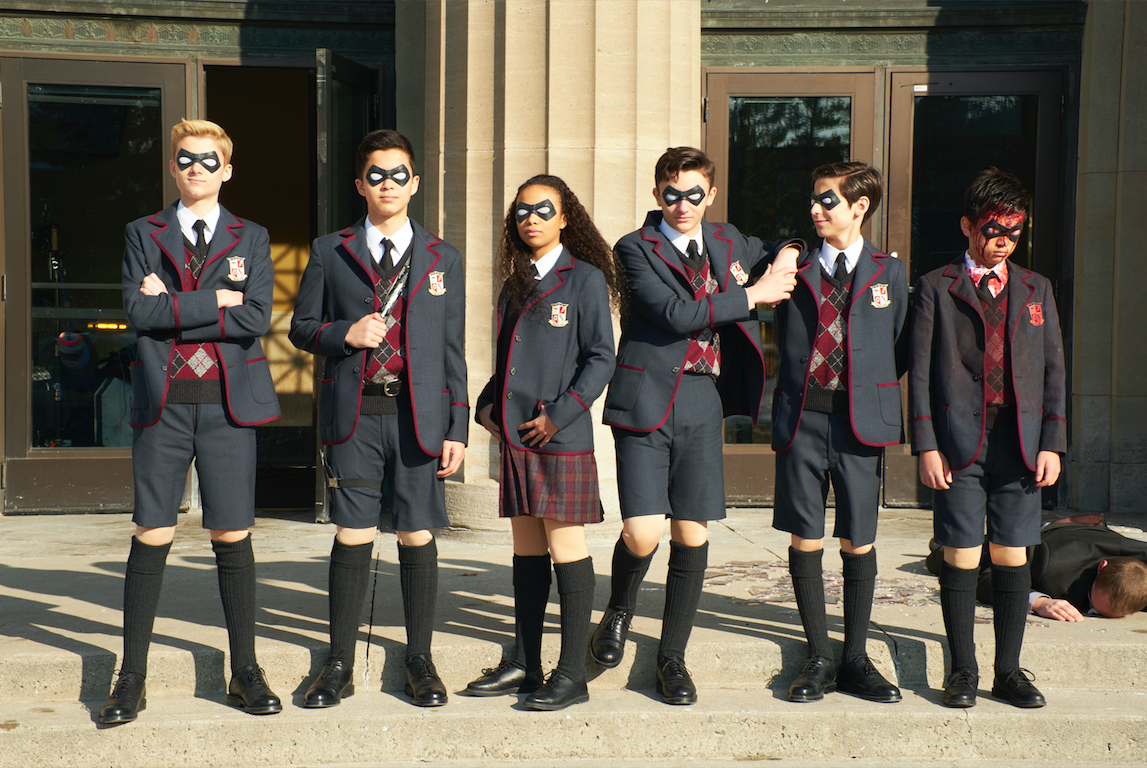
How do you feel about Diego’s relationship to his father in comparison to all the other siblings?
I think Diego was probably the only one of his entire family that didn’t accept his role and that lead to him having confrontations with his dad. He didn’t want to be number two, he wanted to be number 1. And his dad realized this and put him as number two and that push leads Hargreeves to be better. And also, the fact that he was a kid, Diego wanted to be loved and he wanted to be cared for and the only thing that cared for him was a robot mother.
The show starts in the middle of the comic book series after the kid’s adoptive father died. Why do you think they throw the beginning narrative right into the adulthood of the siblings?
Here’s the thing, you’re going to be able to see how we grew up. The world hops between the present and when were all together as child superheroes. So, you will get a feel for that. It won’t just start with us as adults, you actually get to see how we were raised in the show, which will be an interesting thing, because it will kind of latch the audience on between our history and the reason why we are coming together.
Tom Hopper (Luther Hargreeves)
How was it working with Netflix?
Netflix is amazing. One of the great things about working for Netflix is you know that they have the best interest of the show at heart, because they’re very good creators and they want to make the best version of every show they do. So, to have them behind this is great. The show really reflects the passion they put into it.
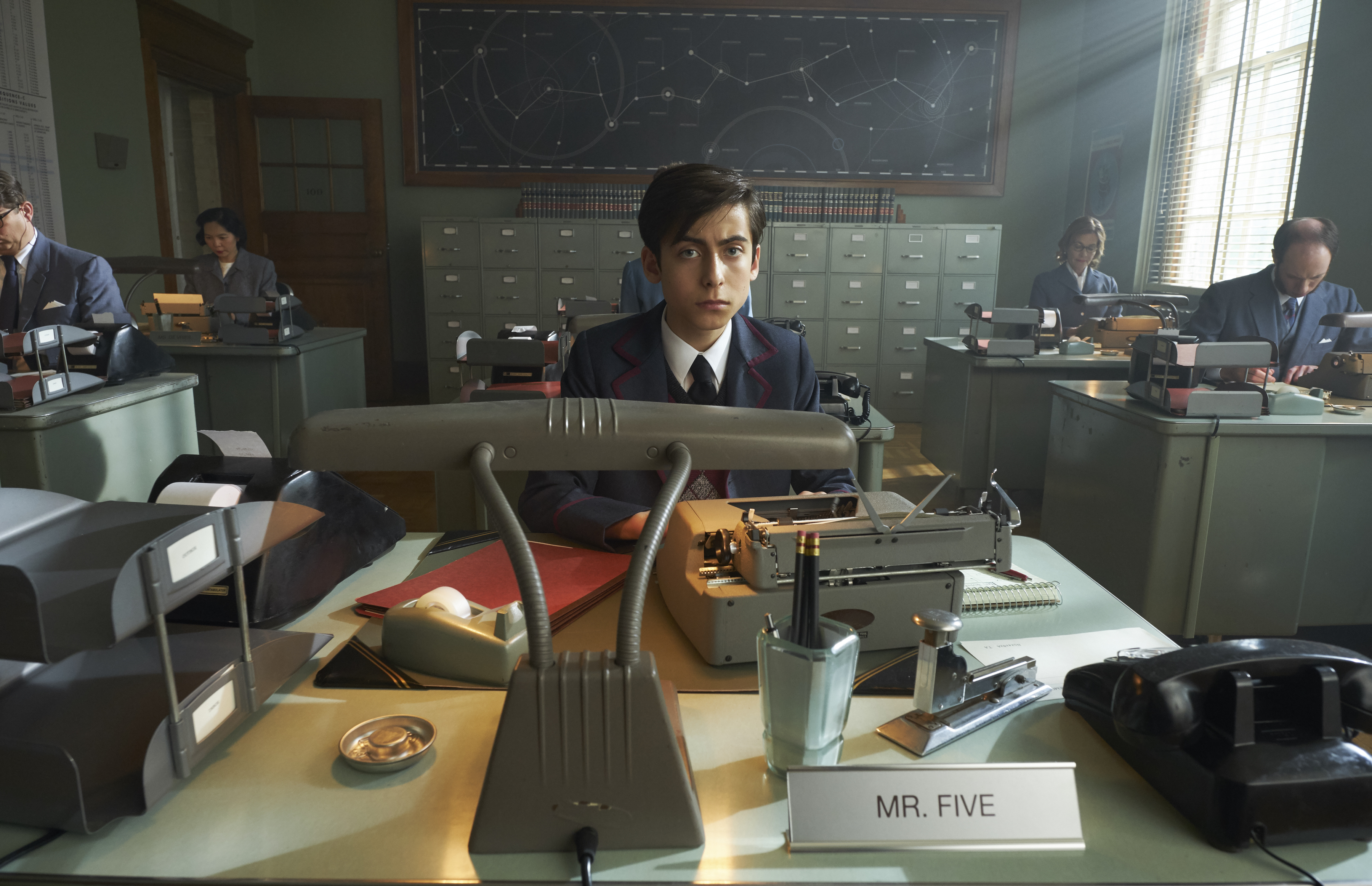
Does the show make use of the binge-able factor of the Netflix platform?
Yes absolutely, the one thing that Steve Blackman, the head creative, said from the start is that it’s got to be a 10-hour movie. Highly unlikely you are going to want to stop watching halfway. Each episode is certainly one that needs you to want to just power through and get through it because each one is so entertaining on its own, each episode is done so well. But at the end of each one the underlining true-line of the show is driving you through it. So, I mean we behind the camera, even just reading the scripts- each time we got a new script, we were so desperate to get the next one because we wanted to know what was gonna happen. So, yes, it’s perfect for Netflix, it’s a perfect binge-watching show.
Did you know about the comics before the show or gain any inspiration from them when performing your character?
Yes. So I came across the comic a few years before when I was at a comic-con event and I met this fan who had this graphic novel and I spoke to her about it and then when it came to me, right down here to this new show, I obviously googled him and I was like “Oh my god, this is that comic I talked to that fan about years ago” and then I started doing more research into it and I saw Luther and I started learning about Luther and read the comic and in my head I was like, I’ve got to play this role- if I don’t go and get this then I might as well give up because I feel like Luther is so right for me. And I feel related to him so much in the way of his manner and in how he’s a sort of a big guy with a softer side. To take that part of what Luther is, I related to that a lot. So, I tried to sort of keep all those things that the comic started off and broadened it, you know, made it a much deeper, richer version of what’s in the comic.
When being surrounded by DC and Marvel series, how does this new super hero universe stand out?
It’s trickier than that because in a lot of ways, even though it is a superhero show, I don’t compare it to those shows, because I feel that it’s far more grounding, in a lot of ways, than that. The super element isnt as defined in umbrella academy- I feel like the character driven element is the thing that defines it and its one of the things that clearly makes the project different from other superhero shows. The thing that drives the whole thing, the thing that wants to make you keep watching is the character element and the dysfunctional family element and the relationship between these people. And then on top of that it’s complimented with all the superhero stuff, so in that way it’s very different from all the Marvel stuff. You know, it obviously has that action element, that superhero action element, but it really is just a compliment on top of the stuff that really is the richness of the show.
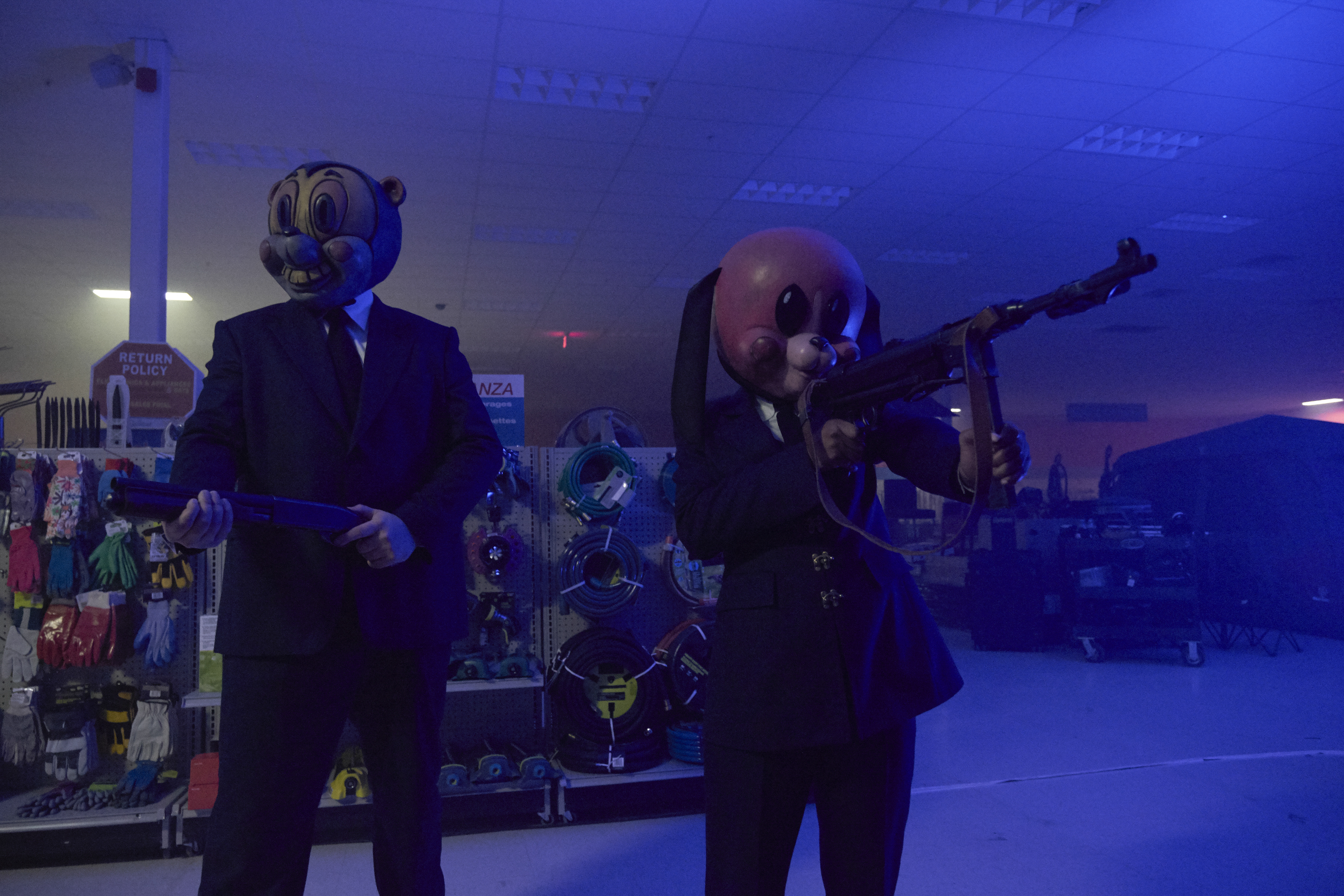
In the comics, your character has a Gorilla Martian body. Is that played out somehow in the series?
I can’t say too much about it, but yes there is certainly a nod to that from the comics. What I will say is that, yes, what Luther’s body is, you obviously see in footage and what you see in the photos, what you will see is his body isnt normal, so I will say that much. And he’s very much aware of that being his body now and it’s a form of body dysmorphia effectively and he’s very conscious of it, and self-aware and sensitive about it actually and not necessarily the body that he was born in anymore. That is a key element in how Luther is dealing with life right now, he’s going through a lot of problems because of it.
How do you feel about the alternate reality that Umbrella Academy is set in?
There is this element of the comics and then there’s also bits of it added and creators have added in as well so, it is effectively set in what you would call present day. I mean I call it like an alternate present day because, they’re no cellphones in this world. It’s almost like it set in the early 90s or something, before a lot of technology existed, like the internet and stuff and so its kind of like a more basic world, a more basic present day, without technology.
The show starts in the middle of the comic book series after the kid’s adoptive father died. Why do you think they throw the beginning narrative right into the adulthood of the siblings?
That’s a good question. I mean, there is a flashback element to the show as well, so that there’s lots of things to the season that you get to see with them living as children and what kind of created the issue that they are now dealing with as sort of 30 year old, and I think the reason why is because it’s a lot more interesting because it keeps the audience guessing on why they are all the way they are. But you will see a huge amount of flashback elements and that flesh out these characters and as you learn about these 30-year old’s, you’ll start to fill out the blanks on why he’s like that and why she’s like that, and why do those two do that together and those blanks get filled in as the season goes on.

Robert Sheehan (Klaus Hargreeves)
Klaus is quite an eccentric character, was it challenging to play him?
Yes, because he is representing certain things like drug addiction, and you want to portray these things with as much honesty as possible and also make it sort of unique and interesting as possible as well. I spent a lot of time trying to figure him out and come up with him and make him feel different to possibly everything I’ve done before, perhaps possibly everything that’s ever been before. I think the more work you do the more fruits you see, so I just took that approach while going in. Didn’t leave any stone unturned.
Did you read the comics? If yes, did you gain any inspiration from them for the show?
I did read the comics. One of the things that struck me about Klaus in the comic book is that he is this strange entity who drifts between sort of our plane of existence and others. He’s almost not fully solid, he gives you that sense in the comic books. Probably because he’s always behind dark sunglasses and like levitating- he has this sort of very French air, you might say. So, I wanted to instill that, I wanted the audience to feel the ghosts that had rubbed off on Klaus over the years.
Klaus has the power of Telekinesis, considered among most superhero universes as the strongest power. Is it used in the show or has Klaus, like many from the Hargreeves, decided to stop using his powers?
He has this very complicated relationship with his power and I think that’s the key to what makes him interesting, because Klaus is a rampant drug addict who will eventually take anything to subdue the voices in his head/dead people that insist on following him around. So, he has this big drug addiction because he was traumatized as a child. This reclusive, eccentric that adopted our dear heroes as children, he put them through very traumatic and rigorous training and Klaus was no exception. So, he had a very troubled relationship with his ability to talk to the dead. Essentially he tries to avoid them like the plague. And what’s interesting is that, as an audience member, as Klaus goes on, sometime you’re not sure whether he’s just talking to himself or whether he’s actually talking to dead people. There’s always an ambiguity with him where you don’t fully know what’s real and what isn’t, which I love.
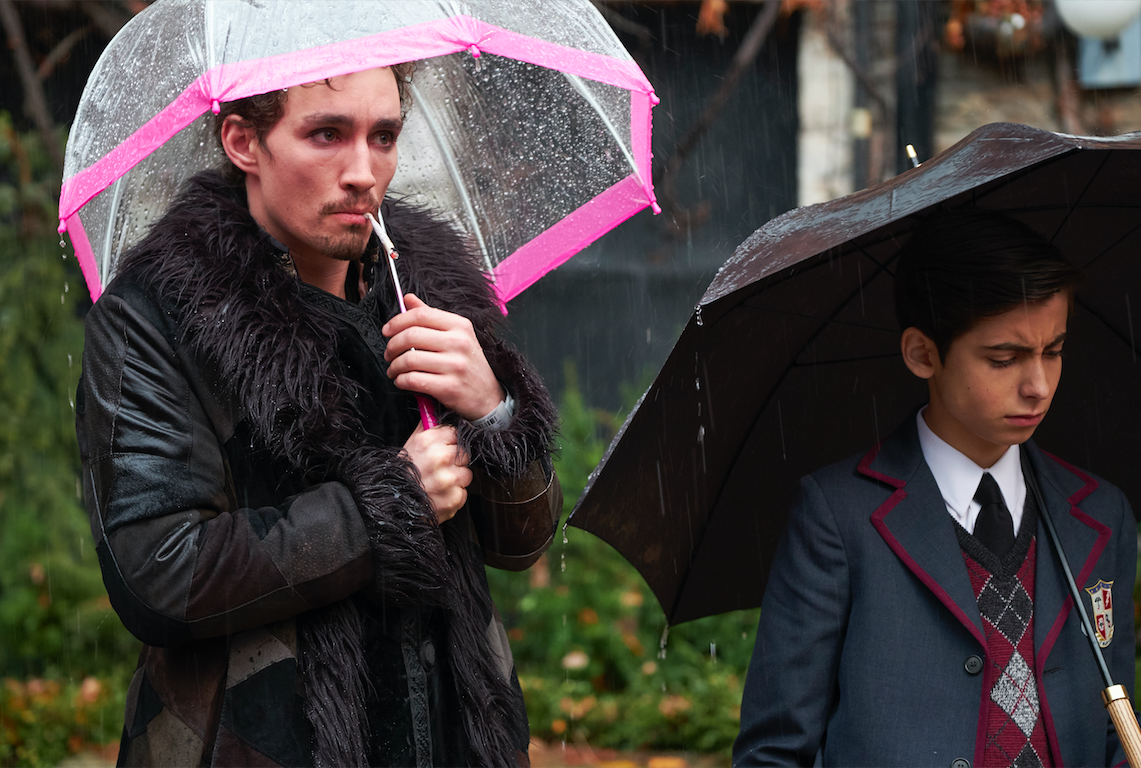
The universe of the show is set in an alternate reality. How does it differ from today’s world?
I think one of the big ways is technology. Our show has its own very interesting brand of technology. So, if you ever see any of the characters interacting with any technology, it has a real sort of retro-futuristic vibe to it, which I really love, because what it does is that it doesn’t pin the show down to any specific time. Time in history, kind of has a vague twentieth century feel, which I really like very much. Its, one of the big things that gives it that other-worldly vibe.
How does Klaus feel about the apocalypse?
I don’t think he gives the slightest bit of importance. That’s what makes him very interesting, is that, the big, grave apocalyptic events, that worry most people, just don’t really matter to Klaus. Because if you can already speak to the dead- if you have a very solid impression of where you’re going after you die, then I suppose worrying about things happening in the future, would just become less of an issue. I think it’s his knowledge and foresight that free him from being too concerned about trivial things like an apocalypse.
What is his relationship with his siblings?
I think because the nature of his life, probably because of his drug addiction, he keeps himself very much on the outside. But underneath, he was raised with these people. They shared a very odd childhood together which bound them together forever. They had this very traumatic experience, which was like a childhood they had to recover from, as opposed to a childhood that kind of is helping you and gets you ready for the world. These guys are still in recovery from such a traumatic childhood. But you know as they say, “Adversity bonds us stronger than contentment,” It’s very true, and so, these handful of people went through this thing. To their knowledge, they’re the only people ever in history to have gone through such a unique experience. So, you know, he still loves them for that, I think he still acknowledges that he’s tied to these people and that they’re a big part of him. But his priorities are different from when we meet him in the beginning of the show. But I think he has real love for them underneath.
By Nour Ibrahim



